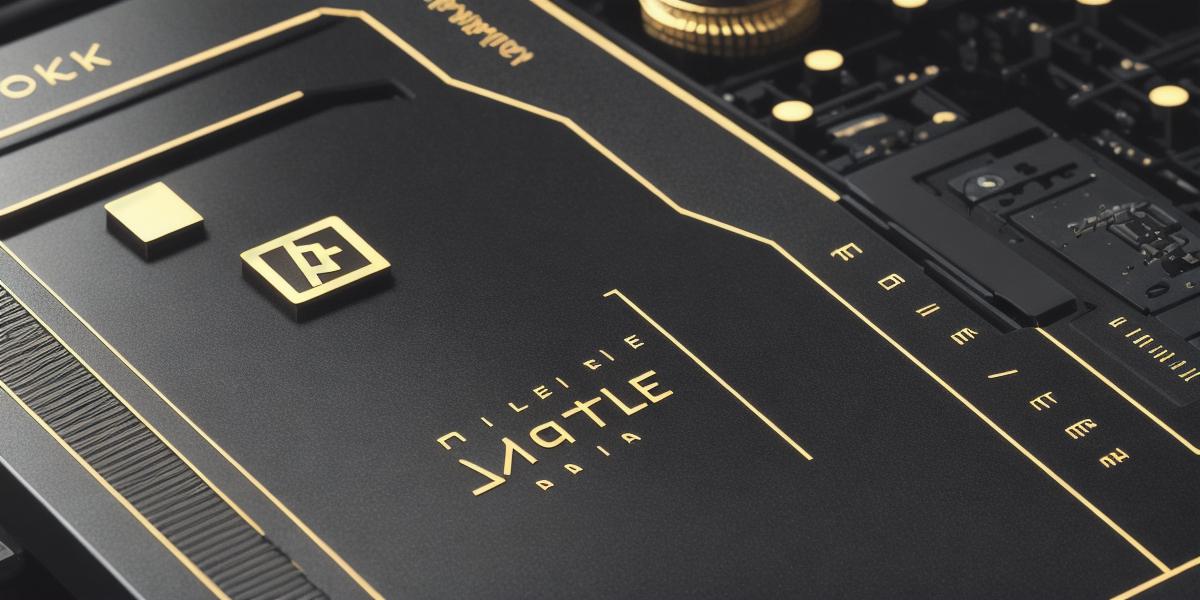As the world becomes increasingly digital, gaming has emerged as a major industry that attracts millions of players worldwide. However, the traditional gaming model has its limitations, such as limited ownership and control of in-game assets, lack of security, and centralized authority. In recent years, blockchain technology has shown promising results in addressing these challenges and revolutionizing the gaming industry.
In this article, we will explore how blockchain technology can transform gaming, including case studies and personal experiences from game developers who have implemented blockchain solutions. We will also provide research and expert opinions to substantiate the benefits of blockchain in gaming, and end with a thought-provoking conclusion on the future of gaming.

Blockchain in Gaming: A Brief Overview
Blockchain technology is a decentralized, secure, and transparent way to store and transfer data. It allows for the creation of trustless transactions without the need for intermediaries or central authorities. In the context of gaming, blockchain can be used to create a more secure and transparent system for owning and trading in-game assets, as well as enabling new gameplay experiences.
Case Studies: Blockchain in Gaming
Decentraland: The Future of Virtual Worlds
Decentraland is a decentralized virtual world built on the Ethereum blockchain. Players can create and own their own avatars, buy and sell virtual real estate, and participate in games and activities within the world. Unlike traditional virtual worlds, which are controlled by a single entity, Decentraland is governed by its users through a decentralized autonomous organization (DAO).
Decentraland’s use of blockchain technology enables players to own their own assets and have complete control over their in-game actions. This has led to a more engaged and motivated player base, as well as new revenue streams for the platform through the sale of virtual real estate and in-game items.
CryptoKitties: The First Blockchain Game to Go Mainstream
CryptoKitties is a blockchain-based game that allows players to collect, breed, and sell unique digital cats. Each cat is stored on the Ethereum blockchain as a non-fungible token (NFT), which gives it a unique identity and value. Players can buy and sell cats using Ether, the cryptocurrency of the Ethereum network.
CryptoKitties was the first blockchain game to go mainstream, with millions of players worldwide participating in its launch in 2017. Its success paved the way for other blockchain games and demonstrated the potential of blockchain technology in the gaming industry.
GameFi: The Future of Gaming Economy
GameFi is a decentralized platform that enables game developers to build and monetize their games using blockchain technology. GameFi’s use of blockchain allows for the creation of trustless transactions, ownership of in-game assets, and new revenue streams through the sale of NFTs.
One of GameFi’s most successful games is Guild Wars 2, which uses blockchain technology to enable players to own their in-game items and have complete control over their actions. This has led to a more engaged and motivated player base, as well as new revenue streams for the game through the sale of NFTs.
The Benefits of Blockchain in Gaming
Ownership and Control of In-Game Assets
Blockchain technology enables players to own their own in-game assets, giving them complete control over what they can do with those assets. This has led to a more engaged and motivated player base, as well as new revenue streams for game developers through the sale of NFTs.
Security and Transparency
Blockchain technology provides a secure and transparent way to store and transfer data,
